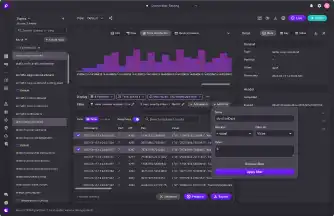Tailored to suit a wide array of industries and diverse use cases, this versatile tool empowers users to optimize Kafka cluster performance without limitations. Whether you're a startup, enterprise, or individual developer, this Kafka partition calculator offers a comprehensive and adaptable solution to determine the ideal partition size for any Kafka topic. Through its user-friendly interface, it ensures efficient data distribution, enhanced resource utilization, and seamless scalability, revolutionizing the way you handle data streaming.
- The brokers are of similar capability.
- The load on the brokers’ machines is similar.
- The messages don't diverge too much in size.
- The messages are evenly distributed across all partitions.
- The number of brokers makes sense in this context.
- Brokers have similar latencies between producers and consumers.
- The throughput per producer is less than 10MB/s.
- Individual brokers have less than 40k partitions.
- The cluster has less than 200k partitions in total.

